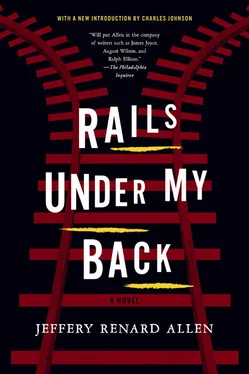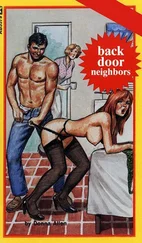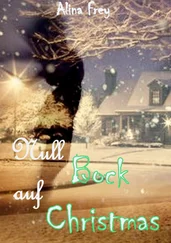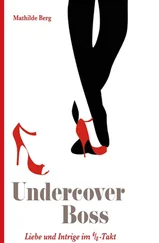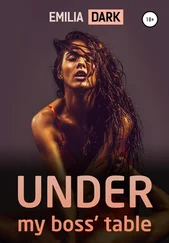Mamma, calm down. Porsha rubbed Mamma’s rough hand — veins like ropes. You know John. And you know how they is together.
Mamma said nothing.
You’d be surprised if they acted any different.
Well, Mamma said. Well. She sipped her tea.
Porsha played the silence. I saw Inez the other day.
When?
Monday.
How is she?
Worst.
Well, Mamma said. Well.
She said that John had been out there.
You can’t believe a word Inez say.
I know.
Mamma sipped her tea.
Though the night was cool, the kitchen was so hot it was hard to breathe. Porsha had something to ask. Her body trembled. Mamma. She blew on her tea.
Yes?
Did Clarence call?
Who?
Clarence. Deathrow.
No. Why you askin me?
Jus wonderin, that’s all.
What, you ain’t heard from him?
Did I say that?
You don’t have to say it.
The phone rang. Mamma took her time about answering it.
Porsha leaned back in the chair and stared into the empty kitchen. In the quiet, she could hear ghosts flit across the ceiling, bump into walls, tiptoe from room to room. She touched each pearl of her necklace carefully like sore teeth. She thought about it all as if the thought would be answered in the asking. Whether by will or circumstance, a man leaves much when he leaves his own bed. She found much satisfaction in the idea. She heard Mamma approaching down the hall. She finished her tea, hoping that heat and taste would remove any trace of the thought from her face.
She’s dead, Mamma said. She leaned her shoulder into the white refrigerator.
Who? Who’s dead?
Lula Mae.
Porsha said nothing.
Now I have nobody.
THAT’S NOT WHAT I SAID, Gracie said.
Well, what did you say?
Sheila, you think you know everything.
You jus don’t want to admit when you wrong.
And you always right.
I didn’t say that.
I know what you said.
I—
The flight attendant brought them both cups of water.
Sheila drank — the water was cool going down; it brought her back to herself — and thanked. Gracie drank but said nothing. Her heavy Bible rested like a paperweight on her narrow lap to keep her from blowing out of her seat. She sat on the aisle. Sheila had allowed her that. Her comfort and more comfort in the knowing. But Gracie was ungrateful, face frowned up as if the water was poison.
Can I get yall anything else?
No, Sheila said. Thank you.
Just call.
The plane hummed through the deep sky. The sisters sat in remembering silence.
He’s a good boy, Lula Mae said.
I know, Gracie said.
He’s a good boy, Sheila said.
She jus said that. You my mamma too?
Well —
She’s right. He would make you a good —
Sides. He ain’t no boy. He a man.
Marry him.
Nawl.
Why not?
I don’t want to, that’s all.
Quit thinking bout yoself.
Who said I’m thinkin bout me.
Think about —
I don’t care.
But —
Why don’t yall jus leave me alone.
Sheila looked at the sea of shifting clouds outside the small window. Traveling clouds. Great flocks of memories. Flurry of claws. She fastened her seat belt. They would be landing soon.
THE MEMPHIS HEAT almost pushed her back onto the plane. She’d left home only an hour ago. The sky was sharp and clear and hot in the morning silence, telling you that, yes, you were someplace else. How many times in the last months had she made this trip? Now, she saw the pattern complete, first stitch to last. Lula Mae on loan, body and soul, both to be returned to her creator.
How you, Miss Pulliam? the white nurse said.
I been better.
Yo cancer actin up?
Lula Mae looked at Sheila, her secret revealed. She had hidden the cancer for five years. I didn’t want yall to worry, she said.
In the following months, she waited patiently for death. This cancer gon kill us all, she said. Now she had passed, moved on to the world to come.
The bridge was steel and stillness and silence. A pyramid of rails and cables. Memphis this side, West Memphis the other. The river below was bright and clean, rocks on the bottom distant but clear, large and white as plates. Just a ways down the river, the dog track sat like a giant oil silo in the sun. Memphis’s best greyhounds chased circular rabbit motion. Real rabbits once. But that too had changed.
The yard across the road was peaceful now, no longer crowded with scurrying chickens. A colorful rooster or two. You would go there and buy fresh brown and green eggs. Now it stood empty and yellow. And on this side of the road where Lula Mae lived an empty field had replaced John Brown’s house. Both the man and his house gone — Brown first then the house — many years now. The promised construction had never begun. John Brown dead a good ten years or more already. Sheila couldn’t say for sure. John Brown would stand in the yard and point up into the tree. See the monkey. See the monkey.
Shell-shocked, Lula Mae said. But he treated her good. Took her anywhere she needed to go in his old pickup truck (gray? blue?), shaking and shuddering and steaming like a train. He believed it to be the only vehicle of its kind in Memphis or West Memphis.
Sheila let Gracie go first on the splintery wood placement — like an old railroad plank, which perhaps it was — that offered a skinny path across the grass-covered drainage ditch. Gracie opened the chain-link fence and charged through the yard as if it all had ordinary meaning to her. Sheila watched from the sidewalk and fought to still her insides. A half-circle of spokes poked through the grass, straighter than peacock feathers. Wrought-iron lawn furniture, painted silver in the sun ( Lula Mae hid the red rust with seasonal coatings of silver paint ), was positioned in front of the green-and-white two-story house — well, the second story with the miter-shaped roof was an attic — for the right combination of sun and shade. A motherly awning reached over and sheltered a snug little concrete porch. No sides or banisters. Barely room for a chair. A porch for looking, not sitting.
TAKE CARE OF EVERYTHING.
I will.
Make sure Hatch has everything he needs.
I will.
You know how he forgets.
You don’t have to remind me.
And try to get here Friday night at the latest. The funeral gon be Saturday morning.
We’ll come well before that.
Don’t be in such a rush. Give your father chance to return.
We will.
Maybe that damn fool John’ll be with him.
More than likely.
You take care and I’ll see yall when you get here.
Okay.
Bye.
Bye. Oh, Mom.
What?
Should we tell Jesus?
You decide.
THIS WAY, Reverend Blunt said. The young and handsome reverend took Sheila by the elbow. He led her down the hall. Sheila looked back to see Gracie still standing at the front door, her Bible tight at her side.
Aren’t you going to come? Sheila said.
The reverend never stopped walking.
No, Gracie said. I’ll see her later.
Well, stay away from that sun, the reverend said, looking back, still walking.
Gracie looked at him as if he’d spoken to her in a foreign language.
I’ll have my boy bring you some tea.
Keep it, Gracie said.
The words caused the reverend to blink. Please, ma’m, keep over there in the shade or you’ll catch heatstroke. Outside, the day’s heat was still rising. Gracie didn’t budge.
Читать дальше
